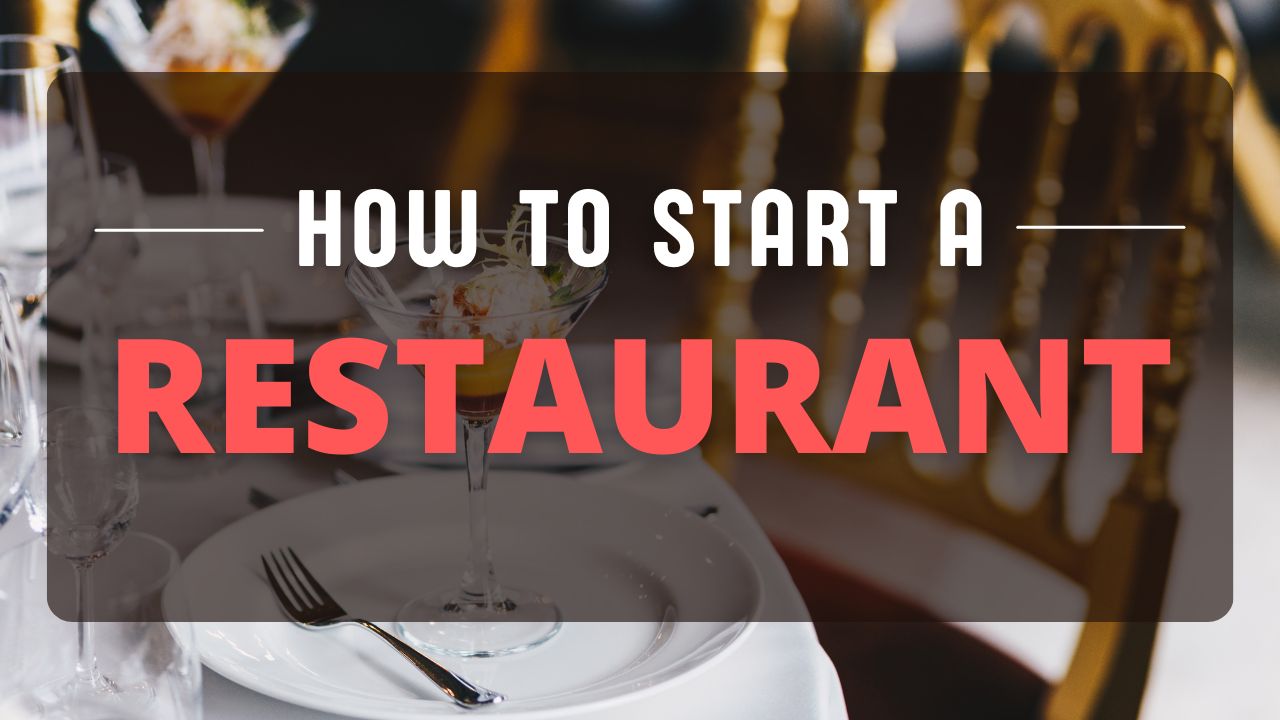The food service industry is one of the fastest-growing industries. The commercial kitchen industry is a vibrant and multifaceted sector. It encompasses a diverse array of establishments, ranging from fine dining restaurants to expansive multinational food chains. Also, commercial kitchens include ghost kitchens, catering services, food trucks, and various other culinary enterprises.
Starting your restaurant can be an exciting endeavour. However, succeeding in the restaurant industry requires a strong understanding of basic culinary concepts, sound business principles, and effective marketing skills, among others. In addition, patience, resilience, and steadfastness are yet other essential factors.
Setting up a restaurant may appear intimidating at first. But with proper preparation and the right guidance you can confidently bring your vision to reality. If you are looking for a clear and detailed blueprint of how to start a restaurant, this is the post for you.
Continue reading the article to turn your visions into reality.
Step-By-Step Guide To Start A Restaurant
Take a look at the steps you need to take to start a restaurant business:
Select a Type Before Starting a Restaurant
The first and foremost step to starting a restaurant is to choose the type of restaurant you want to start. There are a wide variety of restaurant types, such as fine dining restaurants, ghost restaurants, casual dining restaurants, family-style restaurants, cafeterias, and so on.
In addition, consider
- Your targeted audience
- How to make the brand unique?
- What is your speciality, or what will be your signature dishes?
You can gather ideas from various sources, such as online forums, events, and webinars related to the hospitality industry. You can even speak to someone who is already in the industry to get clear ideas about the sector.
Make a Business Plan To Establish a Restaurant

Once you know the type of restaurant you want to start, it’s time to craft a winsome business plan to establish a restaurant. Yes, don’t underestimate the power of a well-curated business plan. Your business plan will include everything, from the type of restaurant you want to start to your marketing strategies and your targeted audience. A business plan serves as a roadmap for any entrepreneur. Be clear on what your requirements are and how you’re going to achieve them. Make a note of the main goal of your restaurant, things to do to attract various customers, staffing, customer service policies, and financial ideas. By considering these factors, you can achieve clarity and develop a more comprehensive roadmap for your restaurant business.
Determine Your Budget To Set up a Restaurant
Budget is yet another significant factor to consider when setting up a restaurant business. Different types of restaurants have varying budget requirements. For example, the cost of setting up a fine dining restaurant will be higher compared to that of a ghost kitchen. Think about which type of investment will be appropriate for you. Analyze every factor to determine a budget and type of funding. It can be business loans, crowdfunding, angel investors, personal savings, government loans, or others. Choose a preferred option available as per your restaurant’s requirements. Whether determining the budget, make sure to include everything from renting a place to buying Commercial Kitchen Equipment, hiring staff, and licensing.
Select a Location To Open a Restaurant

Location is another important factor to consider while opening a restaurant that determines the success of your restaurant. Choose a location with high foot traffic, especially one that has your targeted audience. Plus, consider size, capacity, neighbourhood community, and if it is rented, then check the history. These factors can vary based on your niche, so be conscious while choosing a location. The location itself can be the deciding factor in your success or failure. So, choose wisely!
Acquire Licences and Permits To Run a Restaurant
There are numerous legal formalities and documentation involved in the food service business, especially when you plan to have a robust presence in the market. Yes, you will need a food service licence to cater to your customers professionally. In addition, if you wish to serve alcohol as well, then you will need a special permit for selling alcohol. In addition, you will need to obtain a business licence, sales tax licence, fire safety licence, health/trade permit, eating house permit, etc., to get started with your restaurant business. Rules and regulations vary from state to state and locality to locality; hence, ensure you get detailed information on licences and permits before establishing your setup.
Hire Qualified Chefs and Staff To Develop Your Restaurant
Hiring qualified chefs and hospitality staff are the pillars of a successful business that will develop your restaurant. Identify the right candidates and choose them based on your business priorities. Make a checklist of manpower you will need to run your restaurant successfully. Typically, restaurants require general managers, servers, cashiers, executive chefs, dishwashers, food runners, bussers, hosts, etc. Make sure to meet each candidate in person and check their working methodology and culinary curriculum before offering them a job.
Pro Tip: Make sure to check your chefs’ culinary skills before appointing them. Yes, don’t just rely on the information provided on their CVs. Make them cook their signature dish for you. Additionally, perform a background check before staffing candidates.
Carefully Design a Menu To Grow Your Restaurant
Designing a bewitching menu that draws the attention of the crowd to your restaurant is imperative to grow your restaurant. Prepare two menu designs, one exclusively for your restaurants, and use the other as a pamphlet for marketing. It enhances the profit and establishes your brand name among the customers. Plus, mention the location, highlight your special identity, and mention special offers (if any). Following these strategies will help you attract your target audience and maximise your ROI.
Purchase High-Quality Commercial Appliances
Purchase high-quality Commercial Kitchen Equipment from the best sellers. Make a checklist of items that you are planning to serve in your restaurant. Accordingly, you can make a checklist of commercial kitchen appliances that you will require to prepare those items. Some of the most common kitchen appliances for commercial settings include ovens, food processors, deep freezers, refrigerators, fryers, grillers, rice boilers, steamers, etc. Fortunately, restaurant owners today have access to a wide range of SMART appliances that come equipped with automated systems. These appliances make cooking and serving a large customer base a breeze for restaurateurs. Moreover, they help enhance productivity and build a trustworthy brand in the industry. Having smart appliances at hand will help you serve your customers quickly and efficiently!
Register Your Business Online To Promote Your Restaurant
Last but not least, have an online existence. Yes, registering your business online is the most important thing to achieve success in this digital era to promote your restaurant digitally. Log in to Google Business and add the particular information, such as locality, description, menu, social media links, etc. Promote using appropriate marketing strategies. Also, ask your customers to leave reviews and feedback on your business page. Don’t underestimate the power of good ratings in this digital age! Before opting for your services, each of your customers will check your ranking online! So, make sure to have a solid presence online!
Capping Words
With this, we conclude our guide to starting a successful restaurant business. Follow these tips to witness dream-come-true moments in real life. Careful budgeting and efficient marketing strategies can improve your business and create a signature for your brand. Make sure you choose the best sellers to outsource your business requirements and purchase high-quality commercial kitchen equipment for your setup to make your customer leave with a broad smile!













